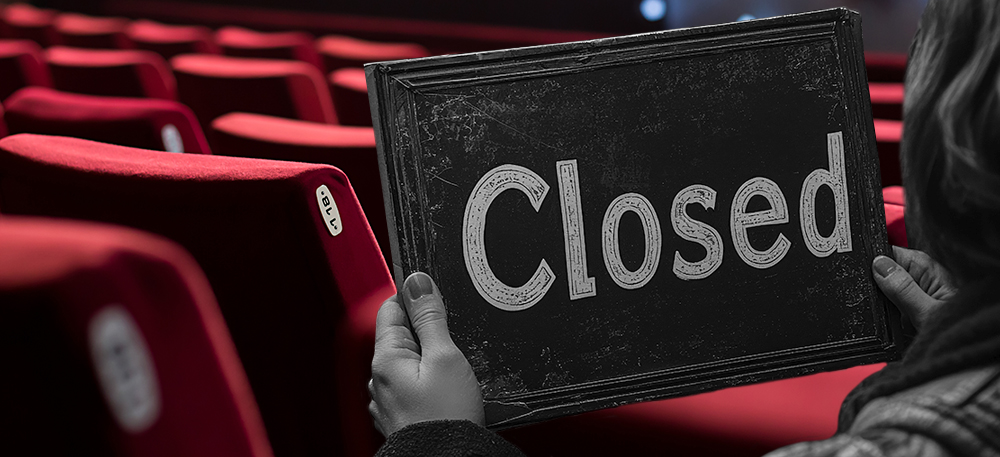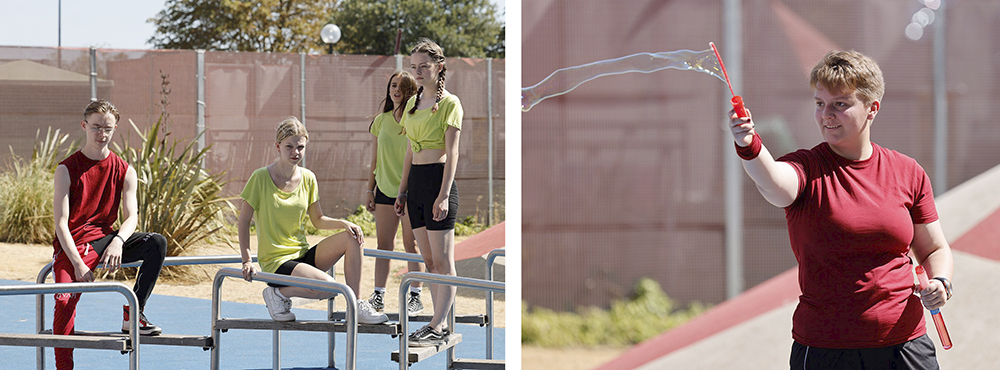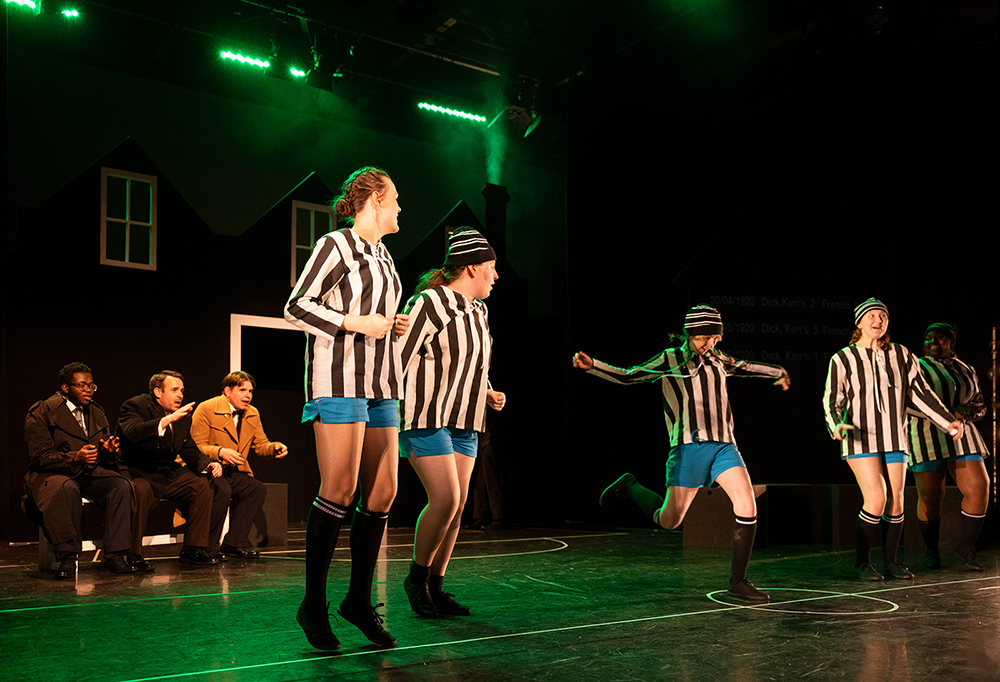Empowering young people in the arts amid budget cuts
20th January 2025
It hasn’t been a great start to the year. We’ve read many devastating stories from those in the arts who are on the brink of closing or have had to close due to funding issues and harsh budget cuts.

This news story from The Guardian speaks of ‘world leading’ drama schools in England ‘shutting down opportunities for talented young people from diverse and less privileged backgrounds’. It mentions Bristol Old Vic, where both Olivia Colman and Daniel Day-Lewis trained, that has announced its undergraduate scheme will be cut from September ’25.
The Stage reports ‘at least 415 youth theatre groups that support more than 100,000 young people are facing an uncertain future due to significant underfunding’.
Solange Urdang’s Dang Academy, which focused on full time training for 16–18-year-olds, started dissolving the company late last year due to funding issues. Arts and cultural programs, courses, events and opportunities for young people are often the first to face budget cuts.

It’s these cuts that will have a detrimental impact on not only the next generation of theatre makers and artists coming in, but on the industry too. With mainstream universities also cutting back on arts subjects and education, we need to take urgent action to bring these opportunities to young people.
Other arts courses will become hugely competitive with those from under-served backgrounds not getting seen. Soon, we will have an industry that is full of the privileged who can afford to train professionally without the need of a student loan.

We are concerned for the diversity of talent in our industry and what will happen to them without the support and training they need. We are once again haemorrhaging talent, and we have no control over it.
As the arts change and evolve, so do the drama courses and the way we teach. All of this comes at an additional cost, which is killing the industry. How can we evolve, teach new blood and bring better theatre to the stage if we don’t have the funding?

We’ve said it before - theatre is more than a stage. It’s a platform that transforms and shapes young minds, fosters creativity, and builds invaluable life skills. Giving young people opportunities is not just about nurturing performers, it’s about investing in the next generation and creating confident, empathetic, and well-rounded young people.
Quality arts education requires skilled teachers, and modern equipment and facilities. Funding ensures young people get the training they need.
The industry is on its knees, and we need to take action. We need to protect the arts and talent within it. We need to be the change and do what we can for young people.

To help the situation, we commissioned local company ‘Offset Projects’ to carry out a short consultation on the opinions and experiences of performing arts for young people in Milton Keynes.
The consultation process involved one face to face meeting with ten young people aged 16 to 21, and a survey that was distributed to over 750 individuals, schools, colleges, youth organisations and arts venues.
This enabled us to give participants the opportunity to have their voices heard, share their thoughts in an open and supportive environment and give valued and honest opinions that aided great discussions.
The consultation was based on eight themes - performing arts venues and spaces; performing arts opportunities for learning and career development; visibility of opportunities; financial barriers; sense of community; ‘failure’, ‘mistakes’ and ‘setbacks’; ‘experiment’, ‘play’ and ‘risk’; and potential areas of opportunity for The Play’s The Thing.
It was fantastic to hear first-hand and read the young people’s experiences, both positive and negative, so we can learn their pain points and where we can support them to help them grow within theatre.
Here is a synopsis of the results:
Performing arts venues and spaces
- There was a good discussion around experiences of larger, more established spaces, and free or community venues. All participants had both positive and negative perceptions and experiences of venues, with many mentioning the lack of entry level or fringe spaces available in the city.
Comments included:
- “I felt like I belonged in these spaces due to the representation of cultures through different performances and the ability to see myself working alongside those performing.”
- “[In] MK, there’s no entry level. A lot of the stages are polished. Unless they’re attached to a school. You don’t get those fringe spaces – attached to a coffee shop, experimental…”
- “I love the effort and passion that creatives in Milton Keynes have and that thought goes into inclusivity, diversity and creative freedom amongst all ages!”
- “I would mostly highlight that often times the shows I see coming in do not always feel diverse or like they represent me….”
- “Compared to other cities across the country, Milton Keynes is not a friendly and open or supportive place to make theatre.”
Performing arts opportunities for learning and career development
– The opinion was mixed, however consultees all said they have experienced the performing arts in Milton Keynes as an audience member; a performer; by working behind the scenes or in a supporting role; or as a learner via a workshop, course or event. The young people do feel that the quantity of opportunities available needs to be increased.
Comments include:
- “The experiences I have had have progressed [me] so well as an actor and I’ve enjoyed a lot!”
- “I feel like Milton Keynes has a fairly varied and diverse performing arts community with lots of different opportunities to take part in all sorts of things.”
- “It's good that high standard training is available but can also become too restricted when you're over 18.”
- “All the good performing arts colleges are in London. If I was picking a uni right now it would be somewhere in London because that’s where the opportunities are.”
- “People leave to find opportunity, but you don’t have people coming to MK because there’s new opportunity for them.”
Visibility of opportunities
– Many stated that advertising and promotion of venues and opportunities should be better. Some venues within Milton Keynes were unknown to the consultees.
Comments included:
- “[Opportunities] could be better advertised as I don't always see until too late.”
- “I feel that overall acting pieces and classes in Milton Keynes could be more showcased and advertised more.”
- “I find that it is often hard to find information about these events as a young person unless I look for it, therefore engagement and advertisement may be a priority.”
- “Contrary to popular belief opportunities are increasing in frequency in and around MK however the issue is often connecting the opportunity to the participant, it is quite disconnected, and it is often hard to find if you aren't already aware of the creative spaces in MK that offer them.”
Financial barriers
– It was unanimous that a barrier to the arts is financial. The consultees are desperation for change and frustrated by the high costs that come with entering the performing arts.
Comments included:
- “Theatre is by no means accessible –[it’s about] what you know and how much money you have to make your dreams a reality…I come from a big family and our financial system wasn’t great – opportunities I was scouring for- I had to look at whether I could afford to pay…”
- “Theatre education should be accessible for all.”
- “I believe there are many opportunities for performing arts if you have the means. I know certainly so many more people my age would take part in these groups if they were funded enough to allow people who can’t afford it to still partake in their activities and opportunities.”
- “If you don’t have the finances you have to say no.”
Sense of community
- consultees feel that there is a lack of community in Milton Keynes that affects their engagement with, and enjoyment of, the performing arts.
Comments included:
- “We have a major lack of community and connection in MK. It’s all very separate. There’s no place you can go when you’re starting out. It’s so sad - from growing up in MK [we] used to have clubs etc. and it has lost that entirely and it’s so commercial. The pandemic has had an impact, but MK was heading in that direction regardless.”
- “There’s loads of spaces and loads of people are moving here but there’s less of a community”
- “In Nottingham there was loads of stuff and much more sense of community.”
- “Most of the shows I have performed in were only one-time things, there wasn't any time to get to know my peers or grow a community with them.”
‘Failure’, ‘mistakes’ and ‘setbacks’
- consultees were asked to consider the terms ‘failure’, ‘mistakes’ and ‘setbacks’. Almost all young people felt that these words represented the performing arts and felt they were “part of the process” or “very important”.
Comments included:
- “Although this is not the nicest side of performing arts, they are equally as important. They are part of learning anything but are very important in performing due to the nature of the industry.”
- “They may sometimes have a negative effect on a performer’s, crew member’s or audience member’s thoughts. However, all are relevant and important steps in improvement.”
- “You have to make mistakes to get stuff right.”
- “I believe no one fails they just don't succeed first time, if you make a mistake just carry on going.”
‘Experiment’, ‘play’ & ‘risk’
- all consultees were asked to consider these words and how they reflected the performing arts. All consultees felt these words bore relation to the industry and felt them to be important.
Comments included:
- “Experimenting with art makes you learn new things, no matter if it’s successful or not you get something out of it.”
- “All three words are skills learnt through performing arts.”
- “Interesting theatre is risky and innovative. Go to the West End or MK Theatre to see polished theatre, but exciting and new theatre does not need to be polished. It needs to be interesting and stimulating.”
Potential areas of opportunity for The Play’s The Thing
– consultees were asked a variety of questions around how they enjoy engaging with the performing arts, careers that appeal to young people, interest in our Creative Youth Board, and interest in being part of our community/amateur theatre groups.
Results included:
- The preferred way of engaging with the performing arts for most consultees surveyed is ‘being on the stage’. Working behind the scenes was less favoured.
- Careers and future pathways varied and included roles such as lighting technician and stagehand. There is a thirst from young people for accessible learning and development opportunities.
- There is an overall interest in joining our Creative Youth Board and taking part in community/volunteer theatre if it meets young peoples’ needs in the right way.
We have a vast amount of interesting and highly valuable data to pull together to create a programme that will support and benefit young people within our community.

With young people showing a passion for the performing arts and wanting a career in theatre, then we should be doing all we can to support their dream.
Supporting theatre for young people is an investment in the future and one that benefits far beyond the stage. We want to ensure every young person has the chance to discover their potential, build essential life skills, and contribute to a thriving, creative society. Help us to champion the arts in Milton Keynes and empower the next generation of theatre and changemakers.